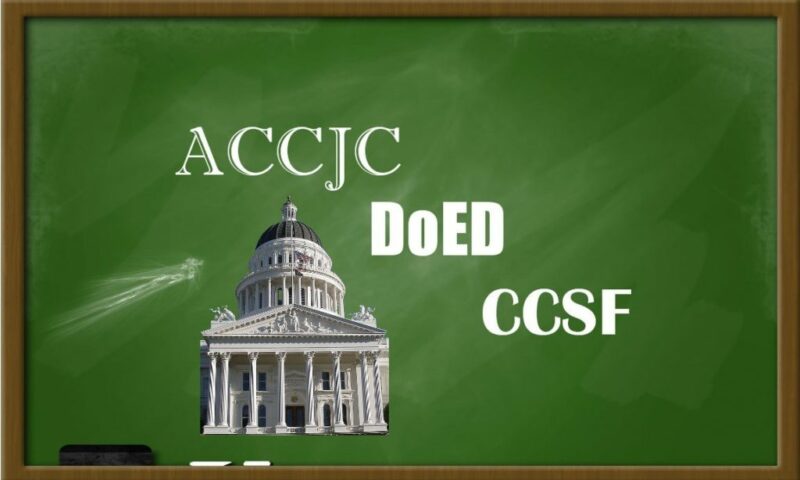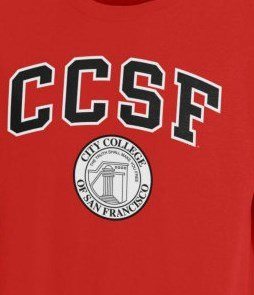

As the edge of summer burns into early autumn, students across the country are going back to school. Most are returning to friends and meeting teachers, but students at Illinois’ Barrington High School are arriving this year to signs that read, “Can’t live on $8.50,” and shouts of “Devuelvenos nuestros salarios!” (Give us back our wages!)
A majority of the school’s contracted janitors—organized by the Service Employees International Union—are striking because, after the Barrington school district renewed a contract with its employer in June, their wages were cut from $9.77 an hour. Already without sick days and health insurance, the janitors are now faced with even lower poverty wages.
As our publication, Making the Grade? Questions to Ask About School Services Privatization, discusses, school districts often don’t save money when they outsource support positions rather than keep them in-house. When contractors aim to maximize profit,
» Read more about: Outsourcing: Maximum Profits, Minimum Standards »


For some people, renting a house or apartment in San Francisco is easy. If your gross pay adds up to $200,000 a year, for example, you might feel fine about sinking a third of this year’s salary into a bright, one-bedroom South Beach loft, or a two-bedroom loft with a view in the Castro District . On less money – say, around $100,000 in take-home pay – you could reasonably afford a Union Square studio, or a 550-square-foot studio for $2,800 in Pacific Heights. Even if you invest no more than a third of your income in rent (the traditionally recommended ceiling), you could live in a one-bedroom apartment in Ingleside, near the San Francisco State University campus. You would have options.
But say you actually work on campus — as a teacher, librarian or groundskeeper. Say you want to go to school there, and not have to commute more than a dozen miles in the morning.
» Read more about: San Francisco Professors and Students Face Staggering Rents »


Earlier this month, in yet another win for local control, leaders in one central Florida county rejected a proposal from a for-profit library management company to take over their public library. The company, Library Systems & Services (LSSI), operates at least 80 public libraries across the country, but Marion County joins a growing list of municipalities that realized that LSSI’s claim to do more with less while still making a profit was a greater fiction than even Stephen King’s best stories.
In 2010, the chief executive of LSSI admitted to the New York Times that the company saves money by cutting overhead and replacing unionized employees. “Cutting overhead” can mean fewer services and reduced hours. Privatized libraries make up for less professional staff by depending on unpaid volunteers and automation. Of course, when outsourcing relies on cutbacks in wages and benefits to realize savings,
» Read more about: Calabasas and Other Towns Reject Privatized Libraries »


If it becomes law, a reform bill now in the state legislature will mark a milestone in the two-year effort to rein in the secretive but powerful private organization responsible for accrediting California’s 112 public community colleges. The target of Assembly Bill 1397 is the Accrediting Commission for Community and Junior Colleges (ACCJC), which was recently thwarted from terminating the accreditation of the City College of San Francisco (CCSF), mostly for issues stemming from the academically high-rated school’s Great Recession-battered finances.
The political firestorm sparked by the unelected commission’s effort to effectively close CCSF turned a spotlight of publicity on the darker policy corners of the commission, revealing an almost comically rogue culture of nepotism, free-market radicalism and mandarin indifference to the lives of students and teachers. But now the commission finds itself caught in that light once more,
» Read more about: Teaching Moment: Will Sacramento School College Accreditors? »


A recent report found more than $200 million in charter school fraud, waste and self-dealing. Headlines regularly tell the story of money stolen and sudden, midyear charter school closures that leave children without a school and teachers unable to serve their students. Meanwhile, the Walton Family Foundation is spending hundreds of millions to promote the rapid expansion of charter schools, while advocating for deregulation and minimal oversight.
Public school advocates have produced an 11-point accountability agenda that would reduce charter school corruption and stop the weakening of neighborhood public schools. The agenda calls for increased accountability (through open board meetings, publicly available budgets and contracts, and rigorous audits); protecting neighborhood schools (through impact analyses and financial assessments of the effects of local schools); and protecting taxpayer funds (by ensuring the public retains control of public property,
» Read more about: Stop the Walmartization of Public Education »


It’s no secret that former U.S. Labor Secretary Robert Reich has some misgivings about the direction of the American economy. But the prolific writer, radio commentator and longtime University of California, Berkeley professor isn’t thrilled about how we are educating our kids, either.
As part of a new project with the activist group MoveOn.org, Reich recently released a video that described our education system as “squashing passion for learning, eroding the love of teaching and grinding up generations of young people.” The critique is accompanied by a set of proposals to reinvent American education – one of 10 planks in a broader agenda titled “10 Ideas to Save the Economy.”
Reich has addressed the nation’s education challenges in his books, including 2011’s Aftershock: The Next Economy and America’s Future, as well as in his 2013 film Inequality for All (available on NetFlix,
Move lips, move minds and make new meanings flare.
— Seamus Heaney, “Beacons at Bealtaine”
During a time of political optimism in Northern Ireland when the peace process was beginning to take hold, Irish poet and Nobel laureate Seamus Heaney gave a talk at Queens University in Belfast about the potential power of poetic language. In a place where the “idioms of suspicion and accusation” were insidious and entrenched, Heaney hoped that a fluid approach to identity and language might provide an escape route from binary thinking and the “weary twisted emotions” of Northern Ireland’s “troubles.”
Heaney suggested that it was poets and other writers who could provide a “re-angling of perception” that might loosen the stranglehold the sectarian psyche had imposed upon the linguistic and political landscape. Given some room to move, a more unruly vocabulary could surface where Catholics might regard themselves as “Catestants,” and Protestants could see themselves as “Protholics” —
Rupert Murdoch’s News Corporation has a digital education division called Amplify. A Bloomberg News article, “News Corp.’s $1 Billion Plan to Overhaul Education Is Riddled With Failures,” outlines the company’s efforts to cash in on education without positive results. Read more here.
Other news:


Maria Bustillos shares her thoughts on our country’s failure to invest in higher education access and the mounting toll it is taking on students today.
This podcast is an encore posting from our State of Inequality series.


[SlideDeck2 id=44878]
This slideshow of the University of California, Riverside is an encore posting from our State of Inequality series.
[divider]
Elizabeth Fladung is a Brooklyn-based, CalArts-trained photojournalist. Her work has appeared in The Nation, La Repubblica, The Fader and Wax Poetics Magazine.


The latest legal assault on the right of the state’s public-sector unions to collect dues was filed in Los Angeles earlier this month by StudentsFirst, the Sacramento-based, national school-privatization organization.
The federal suit, Bain v. California Teachers Association, was brought on behalf of four California public school teacher union members who claim that the state’s current “fair share” rules infringe on their rights by forcing them to choose between paying for union-supported political causes with which they disagree or quitting the union. It seeks to bar unions from collecting dues money earmarked for political purposes as a condition of membership.
At stake are an estimated tens of millions of dollars — and a corresponding political clout — that unions stand to lose if the suit succeeds in making voluntary the 30 percent to 40 percent of dues that members currently pay for political activities.
» Read more about: StudentsFirst Sues Teachers Unions Over Dues »


Click the right arrow button to go to the next slide.
This is an encore posting from our State of Inequality series
[divider]
(Andy Warner’s comics have appeared in many places, including Slate, Medium, American Public Media, Symbolia, KQED, popsci.com and for the United Nations Refugee and Works Agency.)


Click on the right arrow button to go to the next slide.
Data and research for this story were provided by Charlie Eaton of U.C. Berkeley’s Department of Sociology and DebtandSociety.org.
This is an encore posting from our State of Inequality series.
» Read more about: Affluent Private Universities Are Tax Shelters For the Rich »


Thanksgiving is our national food-focused holiday–but Los Angeles has an all-year-round reputation for food obsessions: Paleo diets. Veganism. Juicing. Fasting. Fusion food trucks, kimchi pizza, chorizo-filled potstickers with duck sauce reduction (yes, that is a real recipe).
What gets a lot less foodie press, though, is the City of Los Angeles’s innovation in creating one of the most progressive food policies in the nation.
Cities around the country have established programs to improve the availability of nutritious food for residents and set ethical and environmental standards for the suppliers to the multitude of public institutions that feed millions every year. In 2012 the city established the L.A. Food Policy Council to develop an equitable food policy for Los Angeles and to answer some key questions: How does a city that buys tons of food every year define “locally grown” food? How do purchasing policies sustain small farmers?


The big white tent at Los Angeles Trade Technical College was festooned with balloons, draped in orange and white pennants and full of music. Swelling gospel-flavored sounds, Stevie Wonder’s “Signed, Sealed, Delivered” and the ubiquitous party song “No te Metes con Mi Cucu” signaled a break in the program after a parade of speakers.
The floor was covered with AstroTurf.
Last Saturday’s “Parent Power Convention” was the first-ever national gathering held by Parent Revolution, an organization founded here in 2009. With its feel-good inclusive vibe, the November 15 assembly attracted hundreds of parents, mostly African-American and Latino, from neighborhoods with failing and struggling schools.
Invitations offered free local transportation and childcare. There were many out-of-state visitors. Just as a national political party convention would be organized, delegates sat at tables with tall vertical signs that announced where they were from—Texas, Louisiana, Oklahoma, Mississippi – or identified the “parent unions”
» Read more about: Jumbotrons & Thundersticks: Parent Revolution Throws a Convention »


The long-anticipated trial pitting the City of San Francisco against the Accrediting Commission for Community and Junior Colleges — and its efforts to shut down the city’s storied City College — began Monday. The opening statements in San Francisco Superior Court revealed the stark difference in the way the two sides view the role of public education in society.
“This case is about fairness,” Deputy City Attorney Yvonne Mere said in her remarks, explaining that the ACCJC had far overstepped its authority by trying to revoke the school’s accreditation – and in the process deny a college education to nearly 80,000 students, many of whom come from low income backgrounds.
For its defense, ACCJC announced it had to destroy CCSF in order to save it from the ruin of pension health-care costs generated by union contracts with the school. This alarm had first been sounded by ACCJC in 2006, although it had since been muted.
» Read more about: Trial to Save City College of San Francisco Begins »


The symbolism of last Friday’s press conference by the recently embattled and newly ex-superintendent of the Los Angeles Unified School District, John Deasy, couldn’t have been more explicit. Speaking for the first time as a private citizen, Deasy spoke to reporters on a conference call hosted by Students Matter.
The Silicon Valley-backed, Menlo Park nonprofit has paid the legal bills for the Vergara lawsuit, which challenged teacher job protections in the state earlier this year by successfully suing the California Department of Education and LAUSD. Deasy became a star witness — for the plaintiffs — when he testified against the state and his own district’s teachers.
For a man who had been brought by L.A. Mayor Antonio Villaraigosa from the Gates Foundation in 2010 to LAUSD as the top deputy to then-superintendent Ramon C.
» Read more about: Mistakes Were Made: The John Deasy Years »


Take the state law on fair competition. Add the Accrediting Commission for Community and Junior Colleges‘ actions to shut down City College of San Francisco (CCSF). What will these ingredients amount to in a court of law?
That will be determined by San Francisco Superior Court Judge Curtis E.A. Karnow following a non-jury trial that begins October 27. Last year San Francisco City Attorney Dennis Herrera filed a lawsuit on behalf of the people of the state of California (not CCSF) alleging the ACCJC’s evaluation of CCSF was unfair and unlawful under the state law for business competition.
“We have alleged that the ACCJC’s actions, specifically with respect to the evaluation of CCSF, were both unlawful and unfair,” Sara Eisenberg, a San Francisco Deputy City Attorney, told Capital & Main by phone. The ACCJC is subject to California’s Unfair Competition Law which prohibits any business from engaging in unfair,
» Read more about: City College of San Francisco Trial Approaches »


John Deasy is gone. According to City News Service, the Superintendent of Schools for the Los Angeles Unified School District (LAUSD), “submitted his resignation today, ending his three-year tenure as head of the nation’s second-largest school district. Although he is stepping down as superintendent, he will remain with the district on ‘special assignment’ until Dec. 31.”
Deasy’s resignation letter, posted on LAUSD’s website, concludes:
I will transition from this job to another way to serve. In allowing me to do that, I hereby submit my resignation. I will work with your council to close out my employment contract.
In closing, let me thank my critics, for they have helped us see where we can do our work better, and that is what we do with each opportunity to improve. I also wish to thank my supporters. You have enabled us to move quickly to right wrongs in the lives of youth,
» Read more about: School’s Out for LAUSD Superintendent John Deasy »


A $300,000 plane; $861,000 to pay off personal debts and keep open a struggling restaurant. A down payment on a house and an office flush with flat-screen televisions, executive bathrooms and granite counter tops. This isn’t a list of expenditures from Lifestyles of the Rich and Famous, this represents a small slice of the more than $30 million of taxpayer funds that have been wasted through fraud and abuse in Pennsylvania’s charter schools since they first opened in 1997.
A new report from the Center for Popular Democracy, Integrity in Education, and Action United is blowing the lid off the lack of public oversight at Pennsylvania’s 186 charter schools.
Inadequate audit techniques, insufficient oversight staff and a lack of basic transparency have created a charter system that is ripe for abuse in the Keystone State. But there is hope. The report provides a detailed roadmap for Pennsylvania to create an effective oversight structure and provide meaningful protections that can curtail endemic fraud and waste.